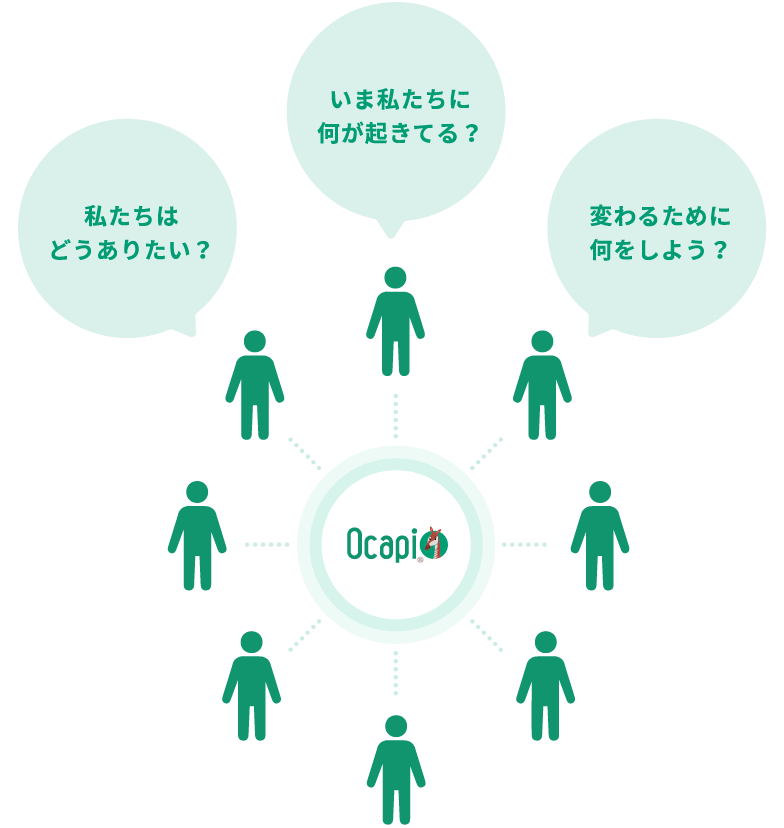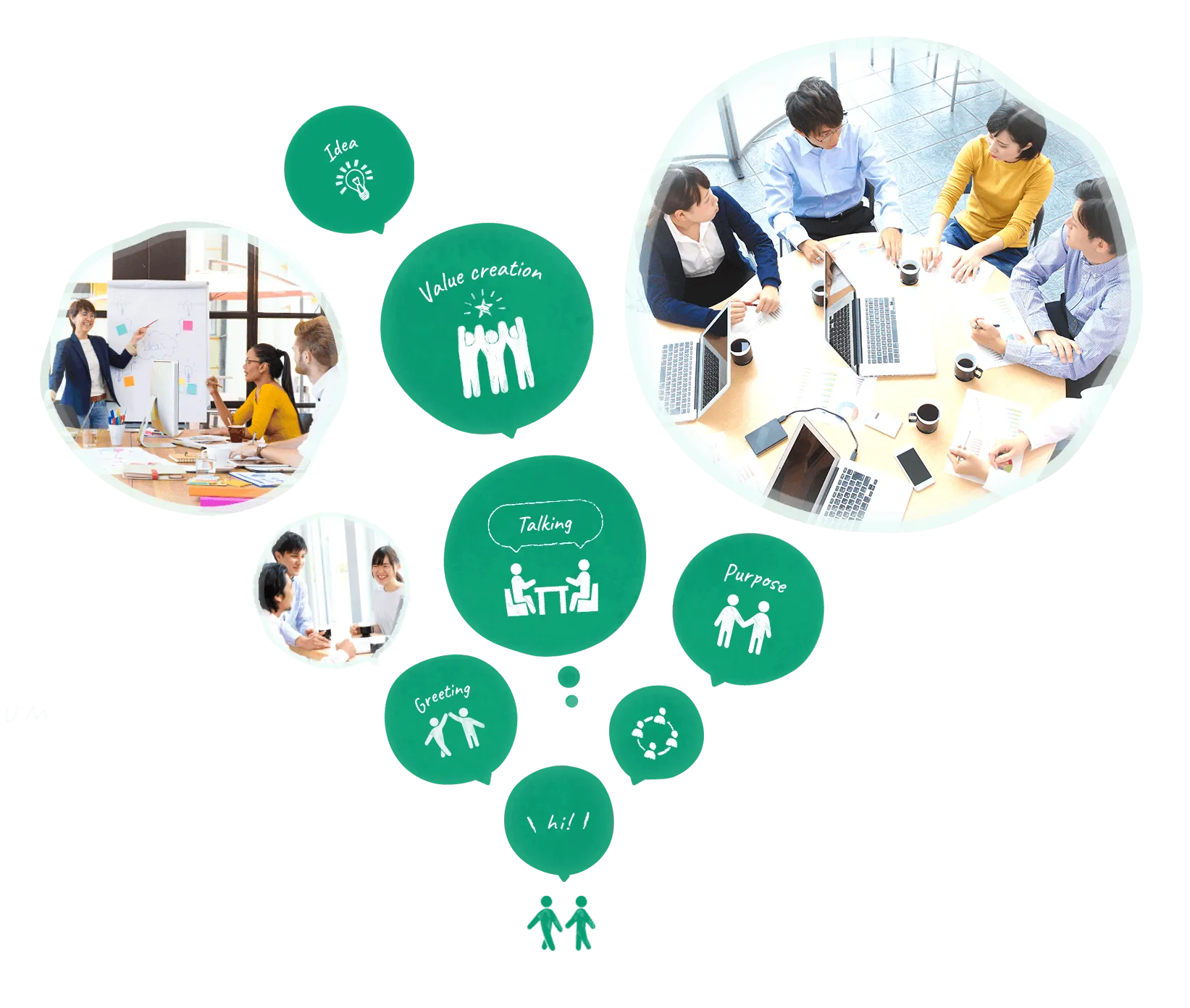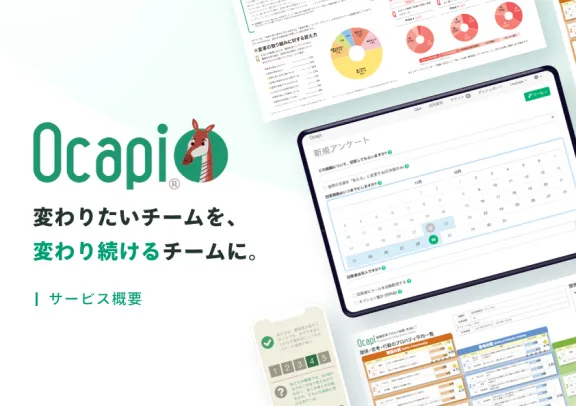Ocapiがチームの架け橋に。
チームが変わる「話し合い」と
「アクションづくり」を後押し。
チームが変わり続けるためには、メンバーが現実に向き合って話し合い、チームをより良くするためのアクションづくりを継続することが大切です。どんなチームでも充実した話し合いができるよう、サポートツールをご用意しています。

レポートを通じて、
立場に
関係なく
フラットに話し合える。
アンケートをもとにチームの関係・思考・行動の質のレベルを可視化し、チームがいまどのような状態かを知ることができます。
日々の具体的な出来事に結びつけて、レポートの数値の背景を皆で考えることで、普段なんとなく感じていたことや、それぞれの本音を率直に話しやすくなります。
PRICE
ご利用料金
組織の大小にかかわらず、どんなチームでもご利用いただけるよう、無理なく続けられる価格を実現しました。
- 基本料金
- 無料
- アンケート1回あたり
- 500円/ 1名
- レポート発行
- 無料



